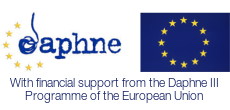Led by the British Association for Adoption and Fostering, this ambitious European project aims at promoting fostering programmes as an alternative to detention for children waiting for their trial or sentence as well as for those found guilty of offences sufficiently serious to warrant custody. As a matter of fact, fostering is one of the many alternatives to custody quoted by Article 40 of the UNCRC; yet, its use remains exeptional throughout Europe.
Project members aims at first drafting an overview of inspiring fostring practices implemented within the European Union before developing a comprehensive step-by-step multi-agency framework for an Intensive and Remand Fostering Programme. The protocol of intervention will include a training programme and briefing documents designed to be effective tools for multi-agency networks, in particular foster carers, fostering and youth justice staff, criminal justice and police personnel , with proposed core minimum standards, guidelines, practical tools procedures and information designed for young people.
Contributing to the European desk analysis of fostering programmes throughout Europe and thus bringing a widespread European perspective to this project, the IJJO hopes to take this particular collaboration as an opportunity to foster aternatives to custody in all their diversity, notably before national and European decision-makers via advocacy campaigns, lobbying and other media stunts.
Overall objective: Even though detention shall be considered as a measure of last resort according to the most ratified treaty in the world that is to say the UN Convention on the Rights of the Child (1989), juvenile justice professionals all acknowledge that detention remains the norm in most cases. To this extent, ceaselessly promoting alternatives to detention is a subject of great importance for the IJJO. This European project shall hopefully shed light on Fostering Programmes designed for children in conflict with the law and by the same token highlight the need for a greater use of educative and / or community-based measures rather than punitive ones.
- Overview of the juvenile justice systems taking into account Fostering Programmes as an alternative to detention throughout the European Union
- Development of a best practice model, which shall include: a training programme and briefing documents designed to be effective tools for multi-agency networks, in particular foster carers, fostering and youth justice staff, criminal justice and police personnel; proposed core minimum standards; guidelines; and practical tools procedures and information designed for young people.
British Association for Adoption and Fostering (BAAF) - Applicant
Eurochild (Belgium)
A National Voice (United Kingdom)
Family Child Youth Association (Hungary)
National Network for Children (Bulgaria)
Social Activities and Practices Institute – SAPI (Bulgaria)
University of Salento – Department of Law (Italy)
International Juvenile Justice Observatory (Belgium)
Kensington and Chelsea (United Kingdom) – Associate partner
Budapest Child Protection Agency (Hungary) – Associate partner
Sofia Municipality (Bulgaria) – Associate partner
